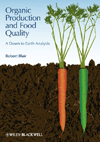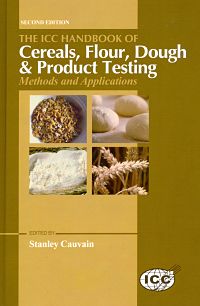A Spoonful of Sugar
By Maria Pilar Clark
Bakers and snack manufacturers are looking for sweeteners that can help them produce natural products with a clean label.
Sugar makes baked goods and snacks go down a little easier. In addition to sweetening, it also can be used as a preserving agent, leading many bakers and snack producers to turn to ingredient manufacturers who are at the forefront of “sugar technology,” developing varied sweeteners and sweetener alternatives for the market.
Sweet Thing
In culinary terms, sugar is most commonly referred to as a type of food ingredient that delivers one of the primary taste sensations: sweetness. To capture sugar’s natural sweet flavor, ingredient manufacturers have developed a number of products that mimic sugar’s functional properties.
New Castle, Del.-based SPI Polyols Inc., for example, offers food manufacturers the most extensive line of functional polyols in the Americas, according to the company.
“SPI is the leader in maltitol syrups and polyglycitols, with a product line developed to mirror the physical properties and functionality of fully caloric sweeteners,” says Ron Deis, vice president of research and development for the company.
In January 2005, SPI launched its own line of Maltisweet crystalline maltitol products designed to meet the growing application needs of the food and confectionery markets, he adds.
In addition, SPI offers food manufacturers a chance to reduce the cost of a sugar-free/reduced sugar formulation while improving laxation performance with its Stabilite line of polyglycitol powders and syrups.
“SPI’s sharp commercial awareness, combined with our excellent development support facilities and personnel, allow us to work very closely with customers to identify, develop and market the right products at the right time,” Deis concludes. “SPI’s strength is in the relationships we build with our partner customers.”
Roquette also is a global leader in producing sorbitol, maltitol, mannitol and other bulk sweeteners, including high-fructose corn syrup, corn syrups and dextrose. The company, based in Lestrem, France, has manufacturing plants in 14 countries, including France, Italy, China and the United States. Roquette America Inc., a wholly owned subsidiary based in Keokuk, Iowa, serves customers locally with manufacturing plants in Keokuk and Gurnee, Ill.
Roquette’s line includes Maltisorb maltitol, Lycasin maltitol syrup, Polysorb polygluctitol and Neosorb sorbitol. According to Carl Jaundoo, associate program coordinator, food and beverage, Maltisorb maltitol is the most widely used bulk sugar replacer in healthy applications.
“Its physical and functional properties are essentially identical to sugar, providing ‘the taste of sugar without the sugar,’” he explains
Maltitol provides both bulk and sweetness to baked products, and with sweetness almost identical to sugar, it can be used in any application to replace the sugar on a one-to-one basis, Jaundoo notes.
“Maltitol has been used successfully as a bulk sugar replacer in baked goods such as cakes, cookies and muffins,” he says. “In all of these applications, the sugar is replaced by an identical amount of maltitol,” he says
From a healthy market perspective, products containing maltitol can be used to manage caloric intake.
“With 2.1 calories per gram and a low glycemic response, maltitol does not trigger the insulin spike associated with sugar,” Jaundoo says. “As such, sugar-free products can be a part of a consumer’s healthy diet.”
Like most polyols, Jaundoo adds, maltitol is heat stable and does not require special treatment for baking and snack food processing.
Naturally Sweet
Sugar actually is good for you, as part of a balanced diet and a lifestyle that includes physical activity, of course. More importantly, it also helps bakers and snack producers develop products with a “clean” label. In fact, many ingredient producers are helping manufacturers “go natural” with products that are naturally sweet.
For instance, Briess Malt & Ingredients Co., Chilton, Wis., produces malt, natural sweeteners and other value-added ingredients for those producers seeking a natural ingredient inclusion.
“An alternative sweetener to corn syrup that helps natural and organic food formulators achieve a clean, healthy label is organic BriesSweet Tapioca syrup,” Bob Hansen, manager of technical services for Briess, explains.
The United States Department of Agriculture-certified organic, all-natural sweetener is enzymatically produced from 100% pure tapioca starch and, according to Hansen, is available in four standard dextrose equivalents — 28DE, 42DE, 45DE High Maltose and 63DE.
“Few if any formulation adjustments need to be made when organic BriesSweet tapioca syrup is substituted with a similar dextrose equivalent corn syrup,” Hansen notes. “It can be used as a one-to-one substitution and functions the same as corn syrup, adding sweetness and browning during processing.”
Briess also produces other grain-based sweeteners, including malt extract, which is the most nutritious of all its natural sweeteners. A standard ingredient for adding flavor and enhancing browning in a variety of baked goods, malt extracts contain protein, vitamins and minerals not found in high-intensity or highly refined sweeteners. Additionally, its BriesSweet sorghum syrups are available in two dextrose equivalents, 45DE High Maltose and 60DE.
“These are new,” Hansen explains, “and have the color and flavor-enhancing abilities of a grain-based sweetener, [and] the added feature of being gluten-free for the production of gluten-free crisp particulates and baked goods that benefit from browning such as pretzels and crackers.”
Danisco Sweeteners, Elmsford, N.Y., also produces natural ingredients such as Litesse polydextrose and lactitol for bakers and snack producers looking to develop natural products.
“[With those ingredients], food companies can develop sugar-free, reduced-sugar, reduced-calorie, low-glycemic bakery products that are also a good source of prebiotic fiber,” notes Donna Brooks, product manager for Danisco.
“Whether it’s fiber-enriched muffins, reduced-sugar cookies or low-glycemic nutrition bars, Danisco Sweeteners’ ingredients can improve the nutritional profiles of a wide range of products for healthful, great-tasting foods,” she adds.
Danisco provides Litesse polydextrose and lactitol, which are ideal ingredients for replacing sugar and functioning as sweetener alternatives for use in baked goods and snacks. Brooks notes that Litesse is a 1 kcal/gram specialty carbohydrate, offering a wide range of physiological and functional benefits. Lactitol is a reduced-calorie sweetener derived from lactose and has half the calories of sugar.
“Both Litesse and lactitol can be used to replace the functionality of sugar in sweet baked goods,” Brooks says. “Lactitol is 40% as sweet as sucrose, while Litesse does not contribute sweetness. Both ingredients work well in combination with all high intensity sweeteners. Litesse also functions as a humectant in baked goods.”
Both ingredients are stable under typical bakery conditions and, as Brooks notes, “Litesse is ideal for use in adding fiber to breads and replacing sugar in muffins, nutrition bars and sweet baked goods, overall. Lactitol works well to replace the bulk and functionality of sugar in cakes and cookies.” SF&WB
What’s in Your Sugar Bowl?
A teaspoon of sugar has just 15 calories. Sweet by nature, sugar is called the “gold standard of sweeteners.” The Sugar Association is improving the image of sugar with these “cane-cepts.”
Sugar is brain food. Sugar-and carbohydrates in general are converted to blood glucose, the fundamental fuel needed by the brain.
Sugar makes nutritious foods tasty enough to eat. Just imagine what healthy foods such as oatmeal and bran muffins would taste like without a sprinkle of sugar.
Sugar helps heal wounds. Sugar has been used for centuries to successfully aid in the healing of wounds. It dries the wound, preventing the growth of bacteria.
Sugar has been an important food ingredient for centuries. Experts place the origin of sugar in the South Pacific about 8,000 years ago.
Sugar caramelizes under heat. Caramelization gives cooked foods a pleasing taste, color and aroma.
Sugar softens acidity in foods. Sugar improves the taste acidic foods by balancing their tartness.
Sugar inhibits mold and yeast growth. Sugar increases the useful life of jams and jellies by binding the water needed by mold and yeast for growth.
Sugar helps foods brown. When bread is toasted or cookies are baked, sugar combines with proteins to produce the appetizing brown color and pleasing aromas.
Sweet by Nature?
In a recent poll, 83% of consumers said there should be regulations for the “natural” claims made by food manufacturers. A survey conducted by Harris Interactive, on behalf of The Sugar Association, Inc. questioned 1,000 consumers about the importance of accurate labeling of food products claiming to be “natural.”
Some 85% said that any food containing anything artificial or synthetic should not be considered natural. More than half of consumers also agreed that the amount of processing or whether a raw material is altered should disqualify a product from making a natural claim.
Natural and organic are the fastest growing categories of food purchases. An official definition by the Food & Drug Administration for making a “natural” claim on food packaging is long overdue, the association notes.
ConAgra Foods is bringing together two brands known for innovation in the whole grains arena. The company’s Healthy Choice, which for two decades has been a pioneer in great-tasting, good-for-you foods; and Ultragrain, a revolutionary whole-wheat flour, give consumers in select markets a chance to stock their pantries with an all-purpose flour that delivers the traditional white flour taste that most Americans prefer, with the whole-grain nutrition nine out of 10 Americans need. Healthy Choice’s new All-Purpose White Flour with Whole Grainsbakes and tastes like white flour, but has 9 gm. per serving of whole grains. For more information, please contact Garth Neuffer at 1-402-595-5376 or Kathy Mutka at 1-312-228-6956.
Edlong Dairy Flavors announces the release of five new flavors that mimic popular authentic Mexican cheeses. These natural and artificial powder flavor varieties are Chihuahua, Manchego, Oaxaca, Panela and Queso Blanco. The concentrated, water dispersible and Kosher-dairy certified flavors work in sauces, dips, topical applications and more. When sampling, ask for Chihuahua #1426, Manchego #1438, Oaxaca #1434, Panela #1436 or Queso Blanco #1424. Suggested usage levels range from 0.10% to 1.00%. 1-888-698-2783.
The Sapore range of all-natural bio-fermented flavors from Puratos imparts product with a sensory experience that will tantalize even the most discriminating taste buds. Clients can get all the taste benefits of signature bread products without spending the time for the flavor to ferment or the money for the skilled labor required. The Sapore range of flavors includes sourdough, sponge, dough, rye and wheat flavors, along with starter cultures and yeast extracts. 1-800-654-0036.






